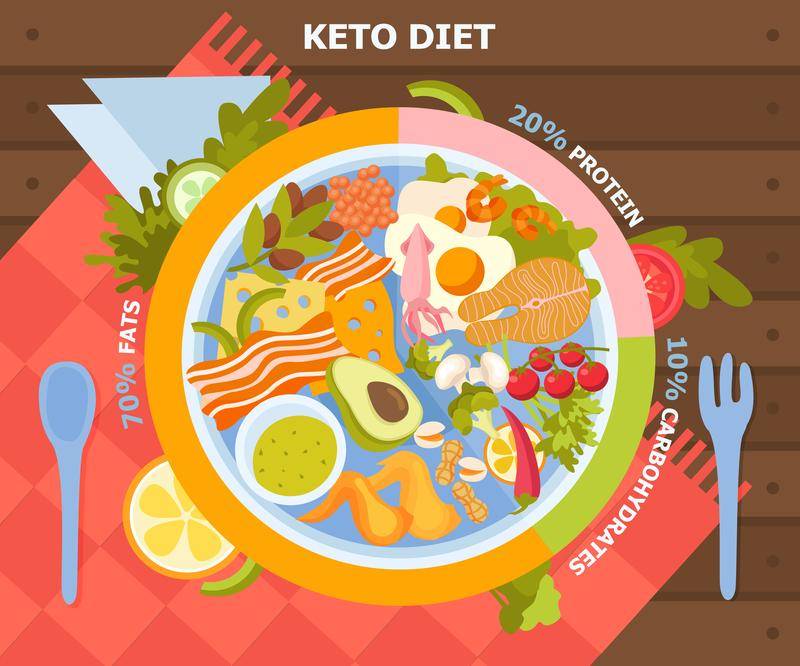

Get Set Gut Microbiome!
We’ve all heard about the gut microbiome’s far-reaching influence on food digestion, immunity, skin health, mental well-being, and stress regulation. But have you ever wondered how it impacts exercise? Or, better yet, how exercise affects it? Recent research is uncovering fascinating connections between your gut’s microscopic community and your workout routine, especially in athletes, where the gut microbiome is emerging as a major determinant of health and performance.
So, as you lace up your running shoes or head to the gym, remember: you're not just boosting your physical fitness — you’re also nurturing the trillions of microbes living inside you. Let’s explore the compelling link between exercise and the gut microbiome!
The Gut Microbiome: A Microscopic Universe Inside You
The human gastrointestinal tract is home to a diverse ecosystem of microorganisms, playing essential protective, structural, and metabolic roles. Often described as a "hidden organ," these microbes maintain intestinal health, regulate immunity, and influence metabolic functions.
When this ecosystem is in balance, it thrives. However, if harmful microbes dominate, gut dysbiosis can occur, leading to inflammation, obesity, and metabolic disorders like diabetes. Think of your gut microbiome as a symphony — when one instrument is out of tune, the harmony is disrupted.
Gut Microbiome and Obesity: A Complex Relationship
The gut microbiome is intricately linked to body weight. Studies have shown that obese individuals typically have a higher ratio of Firmicutes to Bacteroidetes. This imbalance can lead to metabolic challenges and weight management difficulties. Moreover, beneficial microbes like Christensenellaceae, Lactobacillus, Bifidobacteria, and Akkermansia are often found in lower abundance in obese individuals, exacerbating health issues.
Exercise: A Game-Changer for Gut Health
Exercise isn’t just about building muscles or shedding pounds; it’s a powerful tool for modulating gut health. Here’s how:
- Improved Gut Transit Time:
Low-intensity exercise reduces the time pathogens spend in contact with the gut lining, lowering the risk of conditions like colon cancer, inflammatory bowel disease, and diverticulosis. - Reduced Inflammation:
Even with a high-fat diet, exercise can protect intestinal integrity and reduce inflammation, promoting overall gut health. - Boosted Microbial Diversity:
Regular physical activity increases alpha diversity — the variety of microbial species in your gut — leading to a more resilient and health-promoting microbiome. - Enhanced SCFA Production:
Physically active individuals produce more short-chain fatty acids (SCFAs), crucial for energy metabolism and reducing inflammation. - Immune System Benefits:
While intense exercise can temporarily disrupt immune function, consistent and long-term physical activity enhances immune responses and positively alters the gut microbiota.
Microbial Insights from Athletes
Athletes provide a fascinating lens into the gut-exercise connection. Studies have shown:
- Athletes have higher levels of beneficial microbes like Akkermansia muciniphila, which is associated with reduced obesity and improved insulin sensitivity.
- Regular exercise increases SCFA production, essential for energy metabolism and gut integrity.
- Carbohydrate intake during exercise has anti-inflammatory effects, and probiotics can aid post-workout recovery by restoring microbial balance.
Interestingly, while athletes enjoy these benefits, they’re also prone to gut challenges like inflammatory bowel diseases if exposed to excessive exercise stress without adequate recovery.
Practical Tips to Support Your Gut Microbiome Through Exercise
- Consistency is Key:
Long-term exercise routines (over eight weeks) are essential for seeing significant gut health improvements. - Balanced Diet:
Combine physical activity with a fiber-rich diet to nurture beneficial microbes and increase SCFA production. - Hydration and Recovery:
Stay hydrated and consider probiotic supplementation to enhance recovery and gut microbial balance. - Listen to Your Body:
Avoid overtraining to prevent transient immune dysfunction and gut dysbiosis.
Conclusion: Move More, Thrive More
Your gut microbiome is an active participant in your health journey. Exercise doesn’t just sculpt your body; it reshapes your gut ecosystem, fostering microbial diversity, reducing inflammation, and boosting metabolic efficiency. Whether you’re a seasoned athlete or just starting, incorporating regular physical activity into your lifestyle can unlock a healthier, more balanced gut — and by extension, a healthier, happier you.
So, the next time you hit the treadmill, remember: it’s not just you getting stronger; your gut microbes are cheering you on, too!
References
Exercise Modifies the Gut Microbiota with Positive Health Effects

